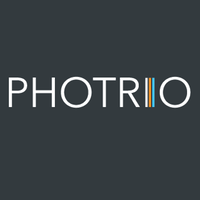Andreas Thaler
Subscriber
Repairing cameras and photo equipment can be a simple and relaxing task.
Equipped with a screwdriver, tweezers, a magnifying glass and a broken camera, you set off on a journey of discovery, hoping to find and fix the problem.
If you succeed, you're happy; if you don't succeed, you've had a few interesting hours and maybe continue on another day. Or you forget about it and don't bother with it any more.
If you stick with it
and make camera repairs a serious hobby, you'll want to delve deeper into the subject and ask yourself what it takes.

Technical literature on camera repair, electronics, optics, precision mechanics and mathematics.
Because the more you know about things, the higher the chance of being successful with a repair.
I suggest the following curriculum in this order:
Studying mathematics helps when reading technical books. When repairing photo equipment, you will rarely have to work as an engineer and design circuits or carry out calculations.
Each of these
is a huge field of expertise, so you should only choose the topics that you need to master the requirements of your work area.
You might also find that you can repair something without any in-depth specialist knowledge. But a little curiosity will always get you further
This knowledge also helps you to judge which repair instructions or videos from others are suitable for DIY and which ones you should discard. The web offers many sources of varying quality.
And very important to maintain motivation:

 www.photrio.com
www.photrio.com
Have fun with one of the most fascinating activities involving technology!
Equipped with a screwdriver, tweezers, a magnifying glass and a broken camera, you set off on a journey of discovery, hoping to find and fix the problem.
If you succeed, you're happy; if you don't succeed, you've had a few interesting hours and maybe continue on another day. Or you forget about it and don't bother with it any more.
If you stick with it
and make camera repairs a serious hobby, you'll want to delve deeper into the subject and ask yourself what it takes.
Technical literature on camera repair, electronics, optics, precision mechanics and mathematics.
Because the more you know about things, the higher the chance of being successful with a repair.
I suggest the following curriculum in this order:
- Handling of basic tools and working through an introductory book on the subject of camera repairs.
- Basics of analog and digital electronics with the aim of understanding and being able to follow the basic terms and processes.
- Soldering and desoldering cables and electronic components.
- Optics and precision mechanics: understanding of basic components and principles.
- Technical calculations, converting formulas, calculating with fractions and powers, using technical calculators or apps/software.
Studying mathematics helps when reading technical books. When repairing photo equipment, you will rarely have to work as an engineer and design circuits or carry out calculations.
Each of these
is a huge field of expertise, so you should only choose the topics that you need to master the requirements of your work area.
You might also find that you can repair something without any in-depth specialist knowledge. But a little curiosity will always get you further

This knowledge also helps you to judge which repair instructions or videos from others are suitable for DIY and which ones you should discard. The web offers many sources of varying quality.
And very important to maintain motivation:

DIY repairs: There are no victories and no defeats
One of the biggest threats to motivation when doing DIY repairs is failure. You have not managed to restore the camera or lens, find the fault, understand its cause, and perhaps you have even damaged something else in the repair attempt. Hours of work, concentration and hope are in vain, and...
Have fun with one of the most fascinating activities involving technology!
Last edited:













